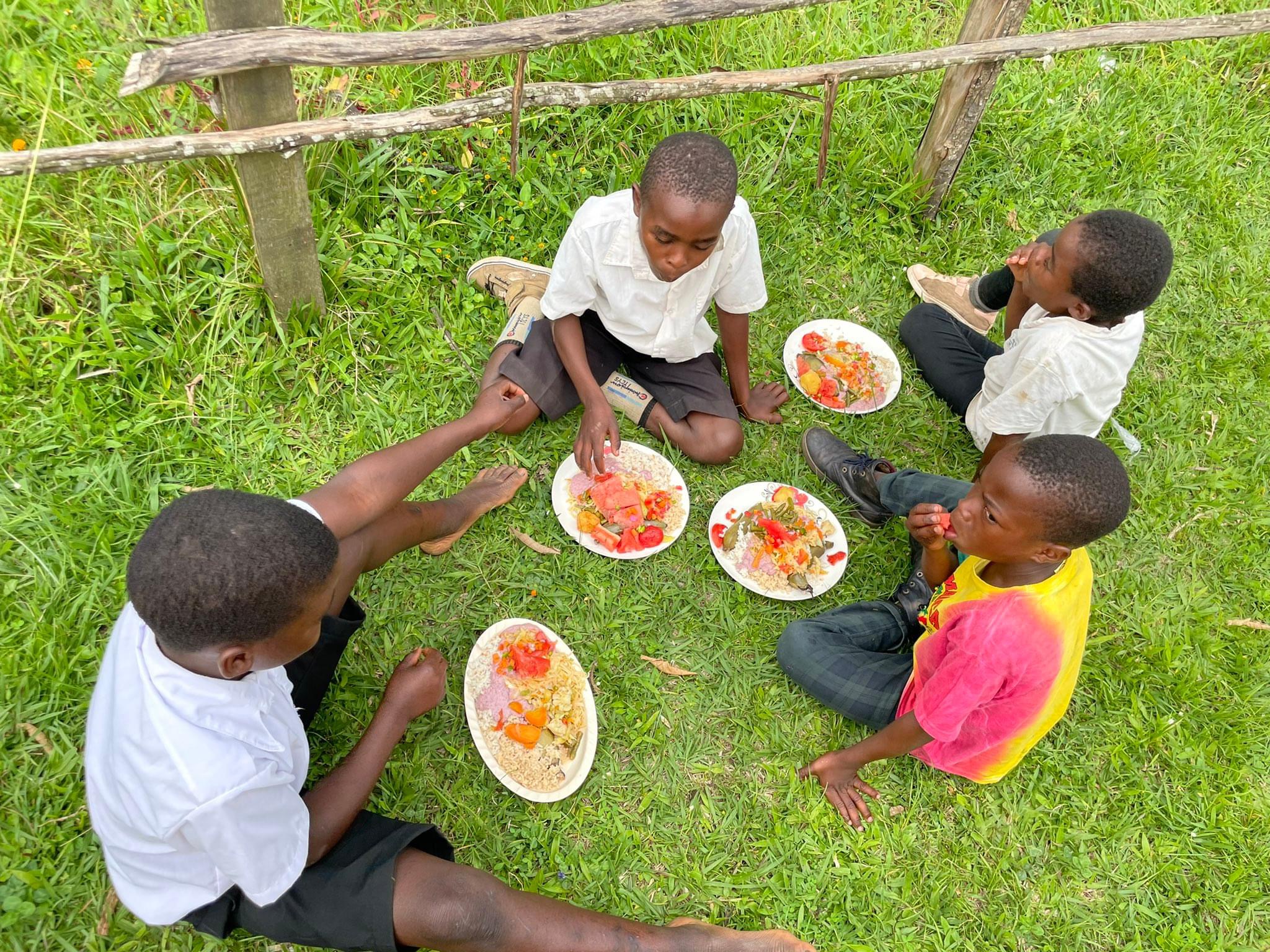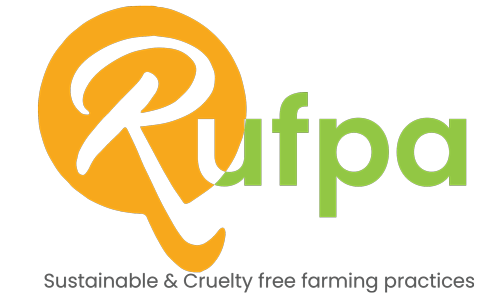Our Goals
Promote Sustainable Crop Agriculture:
● Provide training and resources to farmers in Rukungiri to adopt sustainable and regenerative farming practices.
● Encourage crop diversification, organic farming, and soil conservation techniques.
Animal Welfare Advocacy:
● Raise awareness about humane treatment of farmed animals.
● Promote alternatives to practices that harm animals and the environment, such as factory farming.
Environmental Conservation:
● Implement agroforestry and soil erosion prevention measures to protect the environment and preserve biodiversity.
● Promote responsible water use and sustainable land management.
Community Empowerment:
● Facilitate access to quality seeds, tools, and credit for local farmers.
● Establish cooperatives and farmer groups to foster community cohesion and shared knowledge.
Ethical Choices:
● Encourage and support the adoption of plant-based and sustainable dietary practices among the community.
● Promote reduced consumption of animal products and the use of alternatives.
Economic Development:
● Assist farmers in accessing markets and building strong market linkages.
● Reduce post-harvest losses and improve income for our community members.
Education and Outreach:
● Provide educational programs and workshops on sustainable farming, animal welfare, and ethical choices.
● Foster a sense of compassion towards animals among the community.
Advocacy and Policy Engagement:
● Collaborate with local and national authorities to advocate for policies that promote sustainable agriculture and animal welfare.
● Be a voice for ethical and compassionate farming practices in the region.
Long-Term Sustainability:
● Develop a self-sustaining model for the association, with local ownership and leadership.
● Create a legacy of sustainable agriculture, compassion, and environmental stewardship for future generations
Key Projects
1. Sustainable crop agriculture
We encourage and support farmers to practice sustainable crop farming practices that are good for the
environment.
Improve Livelihoods: Increase income and economic opportunities for farmers through improved agricultural techniques and crop diversification.
Promote Environmental Sustainability: Implement practices that preserve and enhance the natural environment, such as soil conservation and reduced pesticide use.
Empower Local Farmers: Provide training, resources, and support to empower local farmers with the knowledge and skills necessary for sustainable agriculture.
Sustainable Farming Practices: Promote organic and regenerative farming techniques that improve soil health and reduce the need for chemical inputs. This includes composting, cover cropping, and crop rotation.
Irrigation and Water Management: Implement sustainable irrigation systems, such as rainwater harvesting and efficient water use, to ensure consistent crop production and reduce reliance on unpredictable rain patterns.
Capacity Building: Offer training programs and workshops to farmers on modern and sustainable farming methods, pest control, and post-harvest handling to minimize losses.
Access to Resources: Facilitate access to quality seeds, tools, and credit for farmers, enabling them to invest in their farms and increase productivity.
Environmental Conservation: Promote practices such as agroforestry and the planting of cover crops to reduce soil erosion, protect natural habitats, and maintain biodiversity.
Market Linkages: Help farmers access markets, both local and beyond, by establishing cooperatives and partnerships with buyers, thereby improving income and reducing post-harvest losses.
Monitoring and Evaluation: Implement a robust monitoring and evaluation system to assess the project’s impact, adjust strategies as needed, and ensure that sustainability goals are met.
The project should involve local communities, including farmers, traditional leaders, and women’s groups, in the planning and decision-making processes. Their participation can help ensure that the project aligns with their needs and priorities.
Collaborate with local government agencies, non-governmental organizations, and international development organizations to access funding, technical expertise, and resources necessary for the successful implementation of the project.
By implementing this sustainable crop agriculture project concept in Rukungiri district, it can contribute to improved food security, increased incomes, and a healthier environment for the local population while promoting long-term agricultural resilience.
Vegan School Lunch
We work in selected schools by training and encouraging them to introduce affordable, accessible and healthy plant based lunch. This is part of our strategy to reduce cruelty towards farmed animals and reverse the impact of animal agriculture on the environment.
The project seeks to address health, environmental, and ethical treatment of animals among school going children in selected schools.
This project aims to improve the health and well-being of students, reduce the environmental impact of food
production, and promote compassionate towards animals in the food industry.


